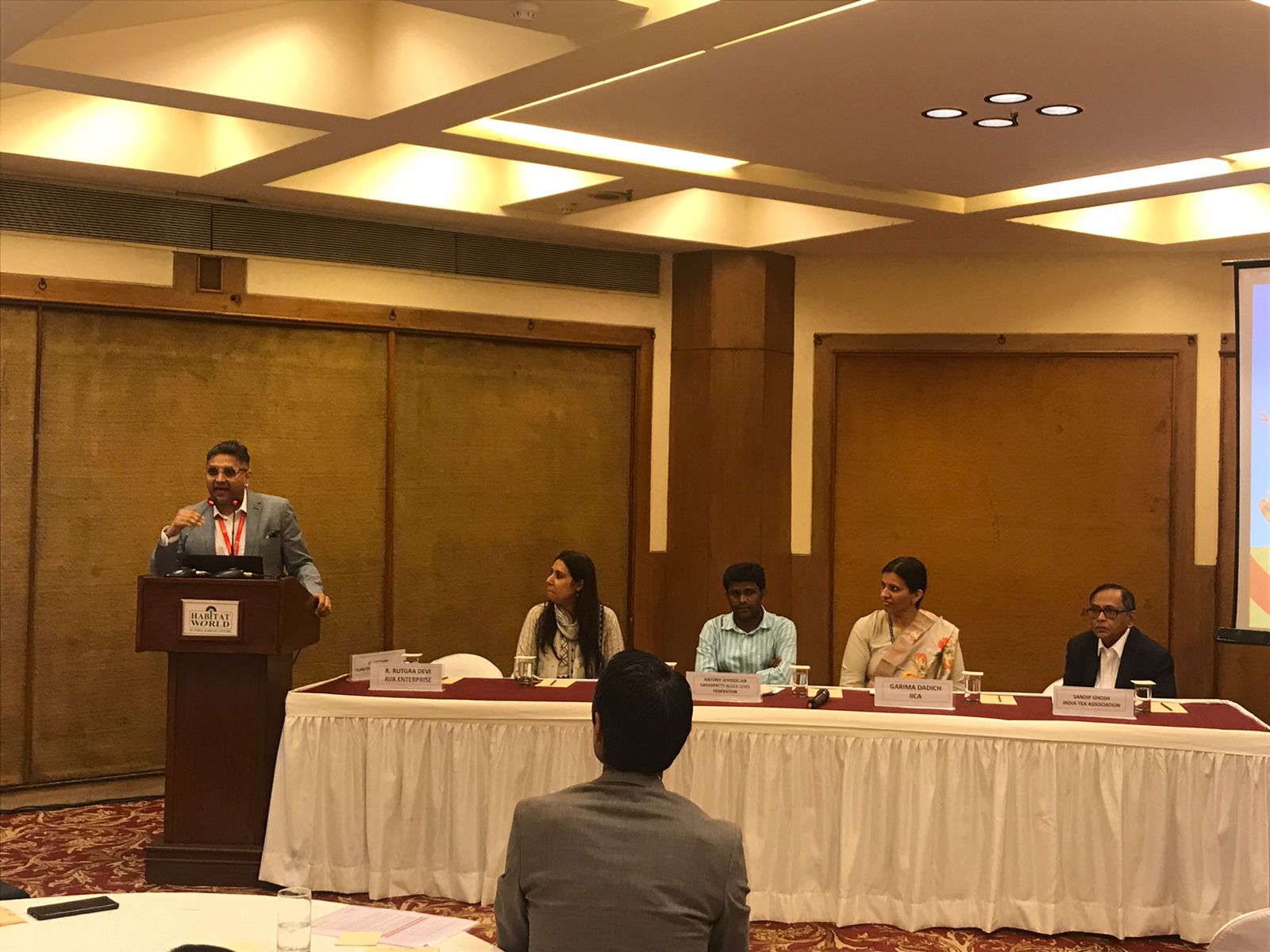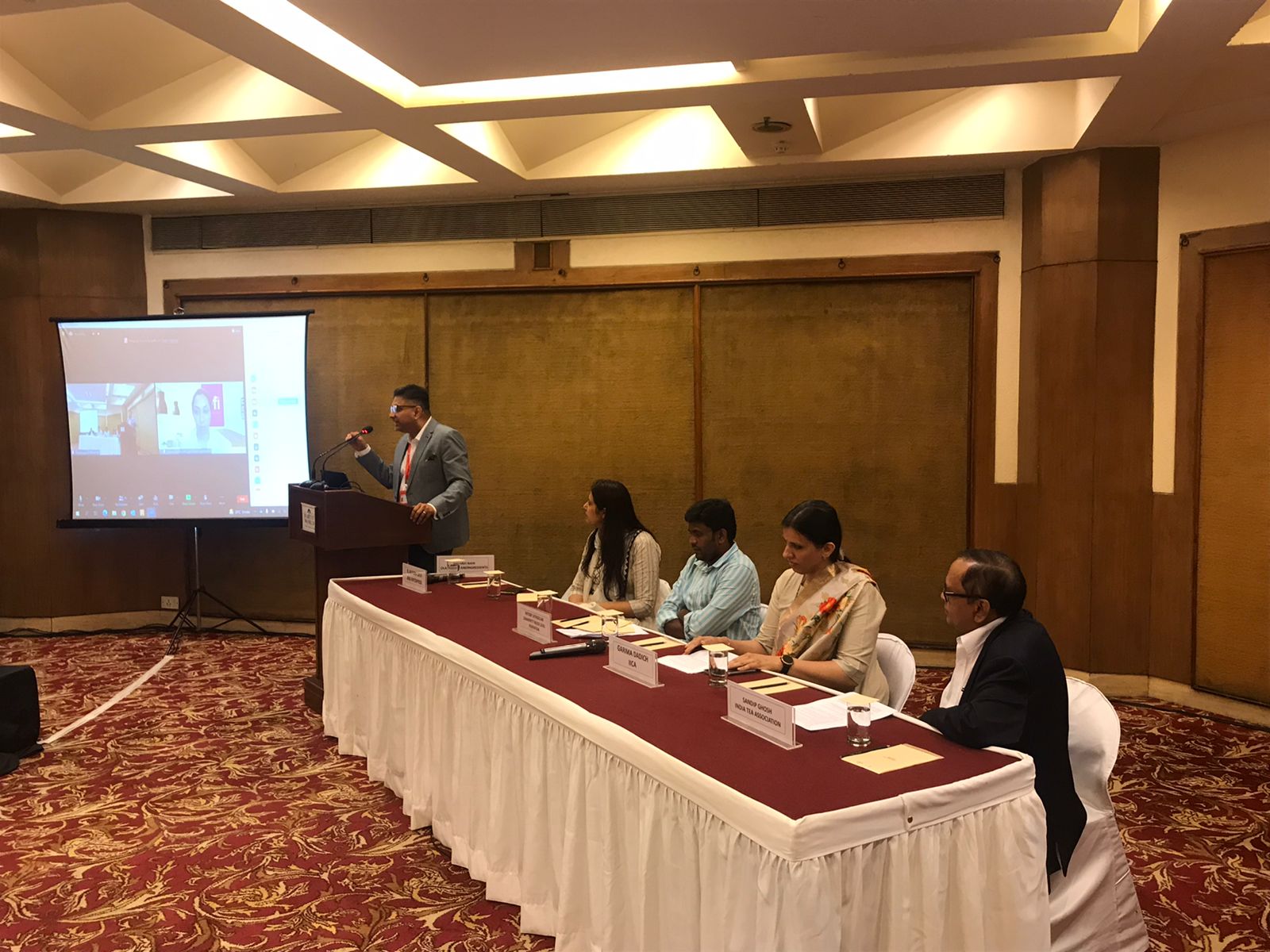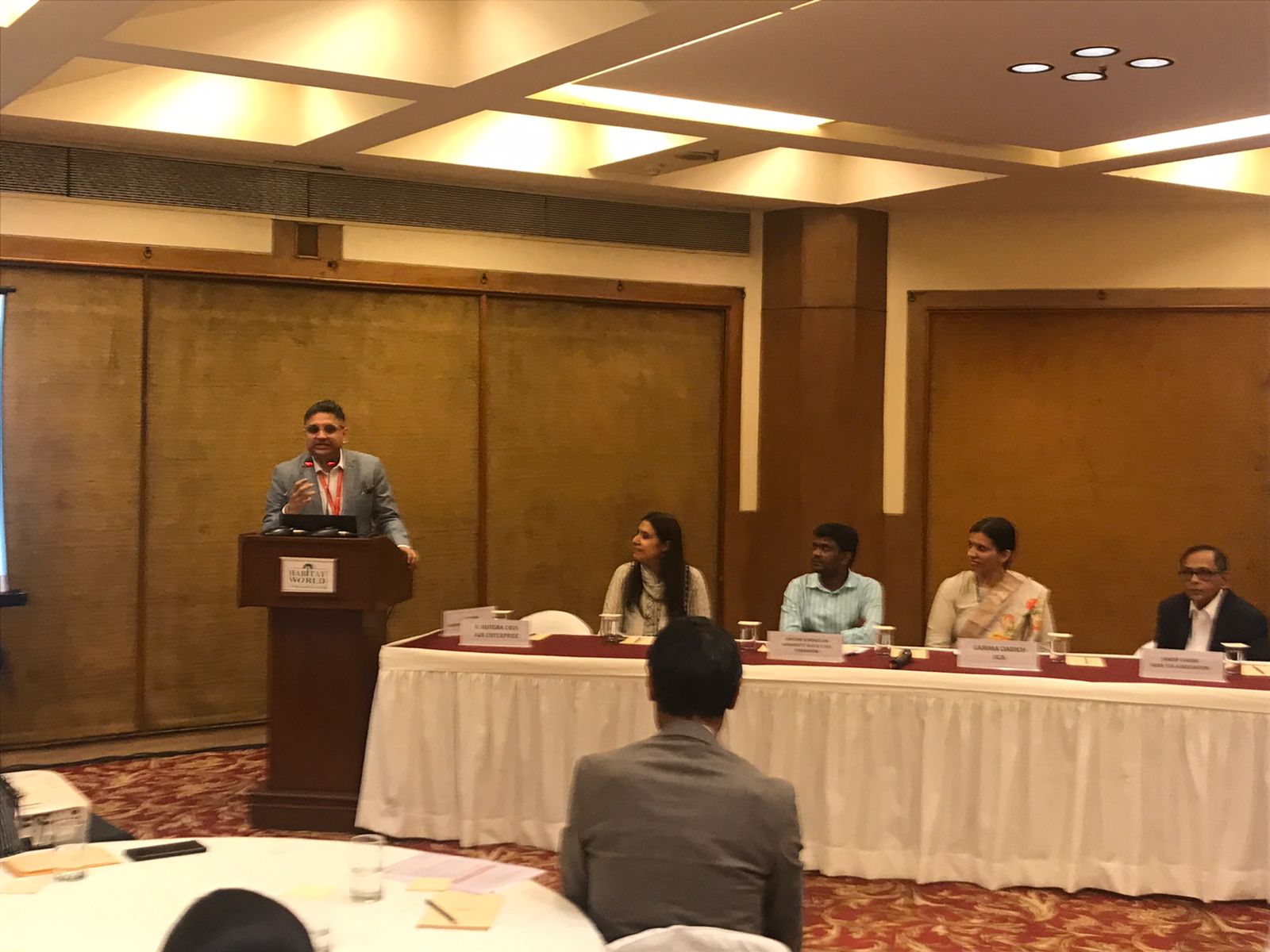

 ~ Localization of Child Rights & Business Principles ~
~ Localization of Child Rights & Business Principles ~
NEW DELHI, NOVEMBER 16, 2022 (GPN): Marking 10 years of Child
Rights and Business Principles (CRBP), core partners – Save the Children and
UNICEF, along with Partners in Change, convened multiple stakeholders –
businesses and business leaders and children to showcase the evolution of CRBP in business practice. The overarching objective was to create an enabling environment around CRBPs by creating a dialogue to demystify the principles and showcase how CRBP has grown principles to practice, reinforce commitment and foreground ambition inspiring businesses to embed CRBP.
The multi-stakeholder discussion on Localization of Child Rights &
Business Principles was moderated by Anindit Roy Chowdhury, Chief of Programmes, Save the Children India and had esteemed guests like Yasumasa Kimura, UNICEF Deputy Representative , Programmes, Garima Dadaich, Associate Professor, Business Environment, Indian Institute of Corporate Affairs, Sandip Ghosh, Secretary, Sustainability, Indian Tea Association, Imran Khan, Executive Director, International Chamber of Commerce, India, R. Rutgra Devi, Owner AVA enterprise, Anthony Jayaseelan, Coordinator, Sanarpathy block level federation, Dindigul, Tamil Nadu, Jahanvi Naidu, Human Rights and Inclusion Manager, Olam Food Ingredients, OFI Indonesia
The discussion revolved around the objective of making businesses aware and educating them on the policies that they should implement in their business to abolish child labour practices. The aim of this conference was to advance the best business practices while acknowledging the enormous benefits received by
the organizations in the past.
Leading the conversation, Yasumasa
Kimura from UNICEF addressed the stakeholders, saying, “Ten years since the Child Rights and Business Principles were developed, UNICEF remains committed to advancing this movement with public and private sector partners – not only to promoting this framework for businesses to respect and support children’s rights, but to apply these principles to help maximize the positive contributions and minimize negative impacts on children. We are proud of our partnerships with key industry associations, business networks and platforms, and academic institutions and collectively we will continue to promote policies and practices to improve the social impacts of business as related to child rights. The examples shared by partners today speak to their conviction and creativity in mainstreaming child rights in workplaces, marketplaces, and communities and we look forward to engaging with many more businesses in India to collectively enhance the uptake of CRBPs across value chains.”
Anindit Roy Chowdhury, Chief of Programmes , Save the Children, India said, “This year is the 10th year
anniversary of Child Rights and Business Principles that was created by Save
the Children, UNICEF and UNGC, but commemorating it is not going to be enough, there’s a lot more that needs to be done. We need to create functional and equitable collaborative between businesses, civil society organisations,
governments, and children themselves, that promote business practices that
value and ensure child rights. It is critical that we all work in partnership
in addressing the various nuances of child rights in business supply chains and processes. Also, businesses cannot be looked at as the source of the problem, it is an inevitable reality of this world, and therefore making them
responsible through dialogue, capacity development and collaboration is the critical way forward”
Speaking on the occasion Sandip Ghosh, Secretary, Sustainability, Indian Tea Association “Child Rights and Business Principles have been
foundational for the engagement with tea estate managers as they have enabled promotion of the most conducive business policies and practices in their estates”
“He further added, over the last few years as the Indian Tea Association, we have focused on a range of actions that Tea Estate managements can take to respect, support, and advance children’s rights, and to ensure any adverse impacts are prevented and addressed”
Key business leaders/partners demonstrated tangible, transformative shifts in businesses that have enabled realization of child rights, including policy commitment, and ensuring due diligence to identify any actual and potential impact the business might have on human rights in all parts of its operations.
The principles address a wide range of ways in which businesses impacts on
children’s rights, including providing decent work for parents and care-givers, and through their impact on the environment.
Covering a wide range of critical issues – from child labour to marketing and
advertising practices to the role of business in aiding children affected by
emergencies – the Principles have enabled companies everywhere to respect children’s rights through their core business actions, but also through policy commitments, due diligence and remediation measures. Long term partnerships with industry associations and businesses have shown the meaningful application of these principles to support the realization of children’s rights.
Building on the Guiding Principles on Business and Human Rights, the Child Rights and Business Principles (CRBP) was the first comprehensive set of principles to guide companies and businesses on the range of actions they can take to respect children’s rights in the workplace, marketplace and community. The CRBP call on
companies everywhere and of all sizes to integrate respect for children’s
rights into their core business activities – from decisions and strategies to
business model and wider sustainability efforts. And these can be used by governments to ensure that business policy and regulation creates that environment that builds that respect.
Since its inception in 2012, over the past 10 years, the principles have served as an inspiration for many businesses, regardless of their size, sector or location. Inspiring action in management suites, farms & factories and creating change in law, standards and practice addressing business impact on children.
ABOUT UNICEF
UNICEF promotes the rights and wellbeing of every child, in everything we do. Together with our partners, we work in 190 countries and territories to translate that commitment into practical action, focusing special effort on reaching the most vulnerable and excluded children, to the benefit of all children, everywhere.
About Save the Children India
Save the Children works across 18 states of India and in 120 countries, on issues related to education, health, protection and humanitarian/DRR needs of children, especially for those who are the most deprived and marginalized. Save the Children’s association with India is more
than 80 years old. Visit www.savethechildren.in for more information.
About Partners in Change
Partners in Change (PiC), a Society registered in 1995 under the Societies Act (1860) to promote responsible business in India. We collaborate with companies, business associations and the government as well as national and international civil society organizations on a wide range of innovative programmes to promote human rights in business.Ends


Be the first to comment on "Children – The Next Business Agenda: evolution of CRBP from principles to practice"